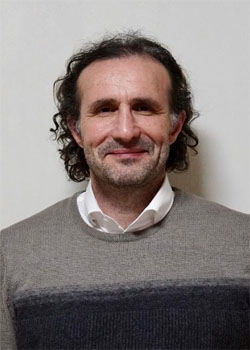Neurofeedback Training Protocols and Case Studies in Dyslexia
Mehmet Fatih Varli, Ph.D.
1-day workshop
Date: Saturday, March 29, 2025
Language: English
Workshop Title
Neurofeedback Training Protocols and Case Studies in Dyslexia
Workshop Description
Dyslexia also called reading disability is a neurodevelopmental disorder characterized by inaccurate or slow reading. Children with dyslexia have a hard time in learning characterized by problems with accurate or fluent word recognition, poor spelling abilities, and decoding.
Children with dyslexia have also been seen to have comorbid difficulties in reading comprehension or math comprehension. One of the major inabilities in dyslexics is efficiently translating written words into sounds, also called the phonological deficit.
Dyslexia is one of the most common developmental problems seen in children, with prevalence rates ranging from 5% to 10% in Western societies (Jonathan E. Walker, MD Charles A. Norman, 2008). Neurobiological evidence from children with dyslexia indicates reduced activation in the left hemisphere, including the temporoparietal regions (Pugh et al., 2005).
EEG studies have provided additional insights into the differences between the oscillatory brain activities in controls and children with dyslexia during the resting state. Children with dyslexia have demonstrated decreased alpha and beta power bilaterally but increased theta power in the left hemisphere (Papagiannopoulou & Lagopoulos, 2016).
There are not many neurofeedback studies on dyslexia in the literature. The aim of this workshop is to present neurofeedback treatment protocols and research – case studies in the literature – regarding Dyslexia. In this context, all existing research in the literature on the subject will be shared with the participants.
This workshop will also offer application-oriented content in which a neurofeedback device and software (BioTrace) will be used in the presentation of a monopolar case study for which the session records will be shared (beginning-middle-end) and error analysis-reading special education will be introduced as a neurofeedback coadjuvant method. Z-score case studies in the literature will be presented in which a neurofeedback-imaging device and software will be used to apply the case study protocols.
Learning Objectives
1) Participants learn about neurofeedback literature regarding dyslexia.
2) Participants will learn neurofeedback protocols related to dyslexia.
3) Participants will learn to analyze session records.
- About Mehmet Fatih Varli
Dr. Varlı completed his undergraduate degree in Psychological Counseling, his master’s in Applied (Clinical) Psychology, and his Ph.D. in the field of Gifted Education.
Supervised by Prof. Dr. John Gruzelier (Goldsmith University of London) and Prof. Dr. Ümit Davaslıgil (Istanbul University) researched the subject of “The Effect of EEG-Biofeedback on the Memory Performance of Gifted and Talented Individuals” in his doctoral thesis and completed his doctorate as a high honor student. He studied at the Department of Psychology at Goldsmith University, London, as part of a joint doctorate.
As of August 2021, he is currently working as a doctoral faculty member in the Department of Psychology at Istanbul Topkapı University..
His academic interests include Quantitative Electroencephalography (qEEG), Event-Related Potentials (ERP), Neurotherapy- Neurofeedback. and Gifted people. He has clinical experience in neurotherapy related to performance enhancement, attention deficit hyperactivity disorder (ADHD), dyslexia, and substance addiction. He teaches a neurotherapy elective course in both English and Turkish to 4th-year psychology students at Istanbul Topkapı University.
The project “Identification of Gifted and Talented People with Event-Related Potential-P300 Brain Imaging”, which he led, received Istanbul Topkapı University scientific research (BAP) support. He founded the qEEG-ERP and Neurotherapy research laboratory at his university. He has been a reviewer for the journal Applied Psychophysiology and Biofeedback since 2018.
He is a member of the EEG Neurofeedback Institute (IFEN) -Management and Clinical-Scientific Advisory Board, the International Organization of Psychophysiology (IOP), the World Council for Gifted and Talented Children, and the International High IQ Association (Mensa International).
Recent Publications and Conference Participations;
Varlı, M.F. & Börüban C. (2024). “Special Reading Education as a Neurofeedback Coadjuvant Technique in Dysphonetic Dyslexia: A Case Study”. Biofeedback Federation of Europe BFE 22nd Meeting, Ljubljana.
Varlı, M.F. & Steffert, T. (2021). “Quantitative Electroencephalogram and Event Related Potential of Gifted Children”, 20th World Congress of Psychophysiology, Virtual Conference, Chinese
Varlı, M.F and Steffert, T. (2021). Quantitative Electroencephalogram and Event Related Potential of Gifted Children. International Journal of Psychophysiology Volume 168, October 2021, 111
Varlı, M.F. and Steffert, T. (2015). The Effect of EEG-Biofeedback Method on Memory Performance of Gifted and Talented Children. Applied Psychophysilogy and Biofeedback Volume: 40, 4, 369-,

